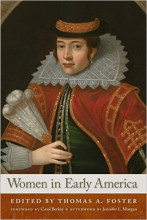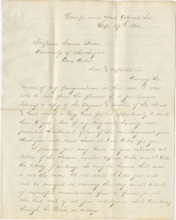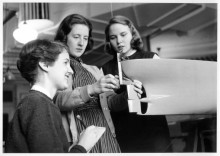John Paul Sciortino
Library Blogs
Showing 11 - 17 of 17 items
Results
for Date: January 2017

Isaac Levine and I have immersed ourselves in the troubling yet rewarding world of guitar effects pedal construction. What began as a short project designed to bolster our knowledge of circuitry in musical instruments has now turned into a lengthy trek to explore the instructional resources of the internet, the inventory of the North Campus WorkBench, and the variability of the electrical components required for guitar effects pedal construction.

Over Fall 2016, the University of Michigan Library updated most of its web sites to operate exclusively on a secure, HTTPS, protocol. Along the way, we learned a few lessons.

Women in Early America (NYU, 2015), edited by Thomas Foster, is the latest in a line of scholarly histories examining the ways that seventeenth- and eighteenth-century women were actually key players in the economic, cultural, and political life of the American colonies despite the many legal and societal obstacles they had to overcome due to their gender. Most chapters in this wide-ranging work, each written by an expert in the field, focus on specific regions or identities. There is a chapter on the gendering of slave ownership in colonial Jamaica, for example, and another on trade and power in Early French America and Detroit. More familiar topics are also covered, like the connections between witchcraft and resistance to patriarchy or the lives of loyalist women in British-occupied New York City. Our own Mary C. Kelley, Ruth Bordin Collegiate Professor of History, American Culture, and Women's Studies, contributes the final chapter of the book. As in her well-known work Learning to Stand And Speak: Women, Education, And Public Life In America's Republic (UNC, 2006), Kelley discusses the ramifications of a revolution in women’s educational opportunities between the Revolutionary and Civil Wars that enabled many to take up positions in the public sphere as writers, educators, and reformers.

I am frequently asked by students and faculty: where do our rare book collections come from? While we have purchased many extraordinary books since the early years of the University of Michigan, many of our treasures were bequeathed by grateful alums and faculty. The reasons why they donated these artifacts are often fascinating, revealing little-known stories that shed light not only on the history of our institution but on our country at large. The book featured in this post is a rare seventeenth-century edition and Latin translation of the Homer's Iliad...
•
A project from the Shapiro Design Lab automatically tweeting out images from the University's history.
•
Now that 2016 has passed, it can be interesting to look back at which games were most popular over the course of the year.

The Shapiro Undergraduate Library is starting off the new year with a bicentennial-themed display of books about all 200 years of U-M's history. A critical part of that history, and a strong component of our display, is the inclusion of women at the university. In this post, we feature five of our many books about women at Michigan.